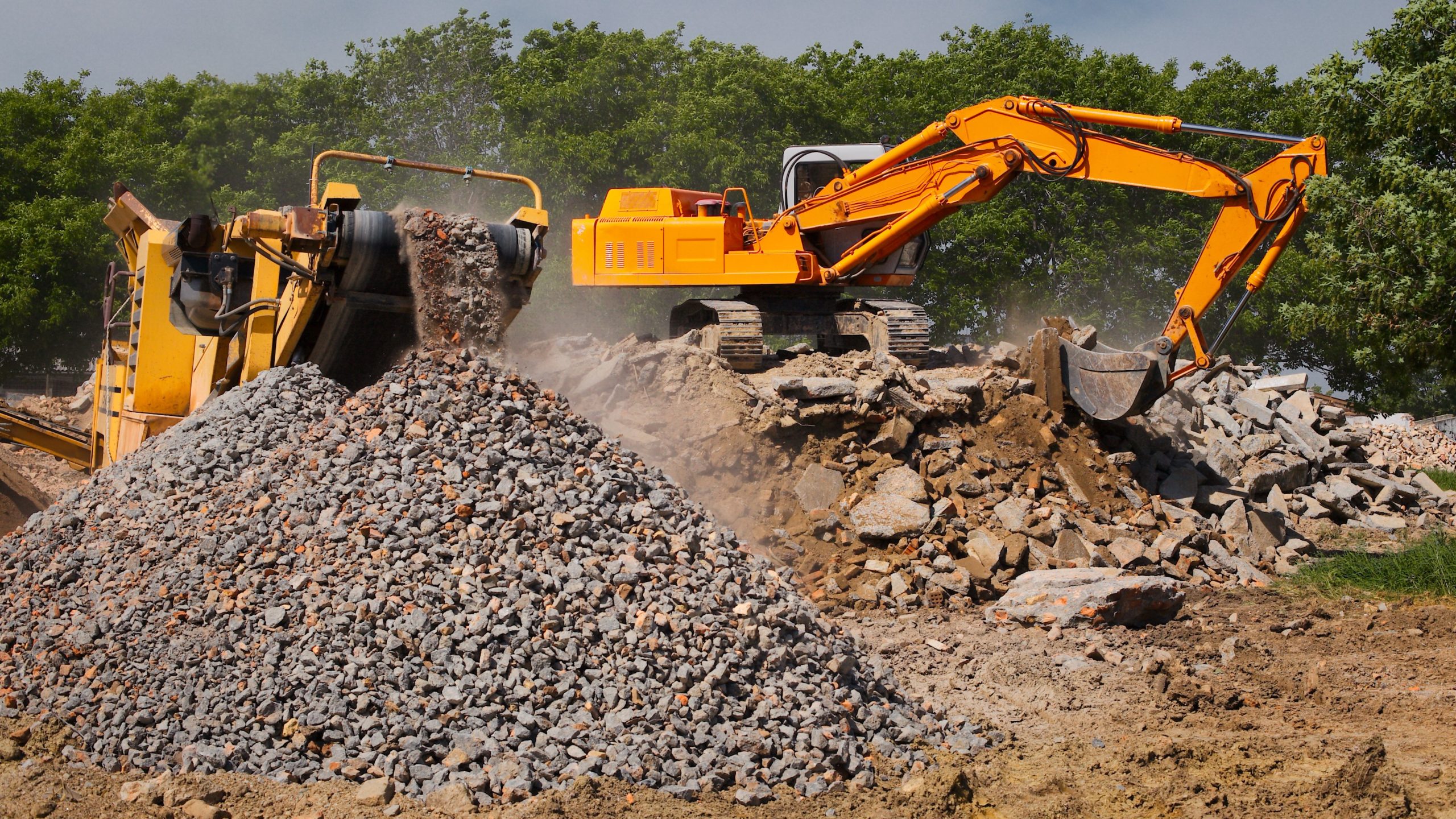
Recycled aggregate could be used more frequently for installation of below-ground attenuation assets, says Stuart Crisp, UK manager of Advanced Drainage Systems (ADS).
Substituting recycled aggregate for virgin aggregate helps retain natural resources for future generations and can come with cost benefits. Although there is an opportunity to do this with below-ground attenuation assets in sustainable drainage systems (SuDS), contractors often choose to go with what they know – which is the ‘safe’ route of virgin aggregates.
In specifying recycled aggregates, designers and contractors should be aware of the relevant standards, together with any technical guidance from the manufacturer of the attenuation product. BS EN 13242 (+A1:2013) sets out the properties required for aggregates produced from natural, manufactured or recycled materials for hydraulically bound and unbound materials for civil engineering works. Reputable suppliers will provide recycled aggregate with a CE mark to demonstrate conformity to the standard.
Different product manufacturers may have additional requirements for recycled aggregate which is to be used in below-ground SuDS attenuation systems to ensure that it performs its intended functions. For instance, ADS Pipe’s technical guidance for recycled aggregate for its StormTech system calls for a 20/40mm aggregate which is clean, crushed and angular, with less than 5% fines. The reason for limiting fines is that the void space between the aggregate needs to be preserved to allow for the storage and movement of the water through the matrix of aggregate.
Specifications should set out an average porosity for the aggregate. Porosity is the volume of voids over the total volume; this is sometimes confused with void ratio which is the volume of voids over the volume of solids which can lead to installed systems not meeting design requirements.
Other factors to consider when selecting recycled aggregate include the nature of the ground and the ground water and whether there are any potentially aggressive substances present. Sulphites carried in ground water, for example, could react with recycled concrete aggregate and degrade it over time.
Different types of below-ground attenuation systems require different proportions of aggregate to manufactured product. Crates deploy small amounts of aggregate around their perimeter, large-diameter pipes and arch-shaped attenuation products use a greater proportion of aggregate.
With arch-shaped attenuation products, the aggregate around the arches has a dual purpose. It provides structural support, with the elliptical shape of the arches forming the aggregate around them into stone arches and structural columns, transferring the loads away from the chambers into the stiffer material surrounding them. The aggregate also provides additional storage volume which contributes to the efficiency of the attenuation system in terms of its water storage capability.
Recycled aggregate will not necessarily have lower embodied carbon than virgin aggregate, which tends to be supplied from quarries close to the point of installation. Recycled aggregate can come at a lower cost than its virgin counterpart, again depending largely on transportation distances.
Generally speaking, attenuation products requiring a higher aggregate-to-product ratio tend to have a lower overall carbon footprint per cubic metre of storage than those requiring less aggregate-to-product.




